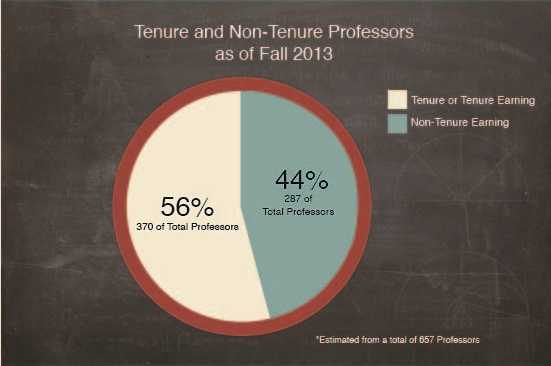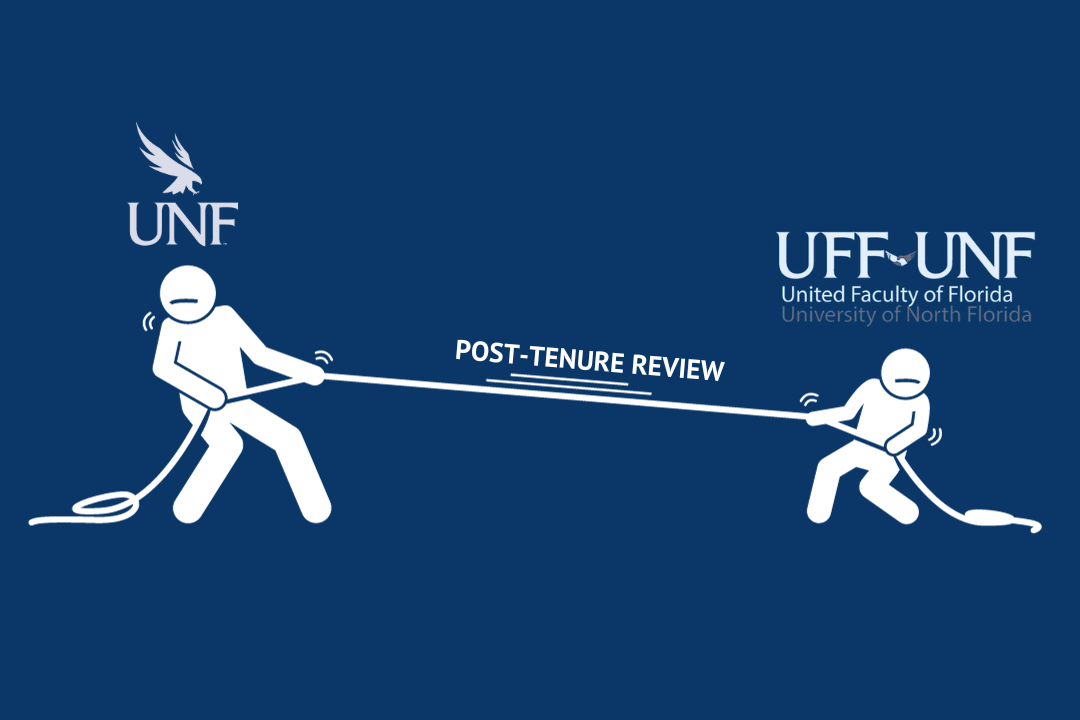Of the twelve professors I’ve had during my time here, six have been full professors and six have been adjuncts. Fortunately for me, they’ve all been some of the best teachers I’ve had in my life – dedicated to their students and truly invested in the learning process.
Of my adjunct professors, four worked outside of UNF, running businesses for themselves. In those cases, I was lucky to be able to take a class from a professor who is still working in the field I’m interested in outside the classroom. I’d consider that an asset to my education.
Unfortunately, based on a study published by the Institute for Policy Studies, it doesn’t seem like adjunct professors at other schools are sought by the universities to give students perspective and insight into the job field. Rather, these adjunct positions appear to be an opportunity for universities to spend less on the very core of any college education – the professors and the students.
According to the study, published May 2014, universities with the highest paid presidents also have the highest amount of low-wage faculty and student debt. For example, between 2006 and 2012, the school with the highest paid executives, Ohio State University, spent over $10 million paying its presidents. At the same time, OSU students’ debt rose 46 percent and their adjunct faculty increased 62 percent.
With only 45 tenure track members, OSU relies on its 498 part-time and contingent faculty members to pick up the slack.
Sadly for those part-time faculty members, they earn 60% less than full-time, tenure-track faculty members when their salaries are expressed on an hourly basis according to The Delphi Project, whose mission is to raise awareness of the mistreatment of adjunct faculty.
According to NPR’s article, released Sept. 22, 2013, exposing the issue, adjunct professors only make an average of $20,000 to $25,000 annually, but they account for 75 percent of college professors.

So what about UNF? Thankfully, we attend a school that has a total of 420 tenured or tenure-earning full professors, meaning we are way ahead of the curve in this area. And our president only makes $500,000 at most per year – no small chunk of change, but at least funds needed for professors aren’t being funneled into his bank account. We can be proud of our school because, according to the numbers, UNF doesn’t take advantage of part-time faculty who work just as hard to earn much less.
Huffington Post compiled a list of resources that detail the unpleasantness of being an adjunct: working more than one job is not uncommon for those professors, who often live like the broke college students they teach. They may still live with their parents, or chow on ramen noodles. Additionally, they’re often excluded from health care plans offered by universities and are not permitted to join faculty senates.
This kind of treatment is not only a disadvantage to those who have to live with it, but to the students as well. Institutions with a high number of adjunct faculty as teachers have lower-graduation rates, according to research done by The Delphi Project. This is to be expected when teachers don’t have the security they need to focus on their jobs.
Despite all of these bad effects, colleges like OSU continue to rely on adjunct faculty. These people are struggling to make ends meet while the president of their college enjoys a yearly salary of almost $6 million.
It’s reminiscent to the government’s reliance on revenue from interest on student loans – the wrong person is being blamed. Students are being charged for nothing more than seeking an education, and adjunct professors are being taken advantage of for teaching.
The fact that adjunct professors receive such poor treatment is a reflection of the broken system of higher education. The problems are no longer faced solely by students, but by employees of the institutions themselves. Perhaps this will finally prompt some change. But when those who hold the most power to evoke change are earning seven figure salaries from the broken system, it’s unlikely that we will see any positive shifts in the near future.
Email Cassidy Alexander at reporter8@unfspinnaker.com











